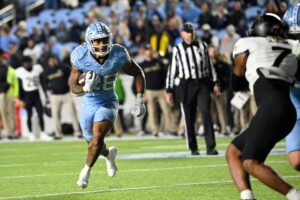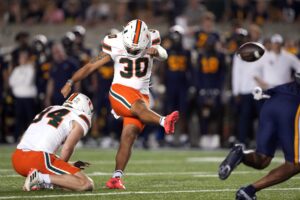Editor’s Note: Updated to reflect player’s decision to end boycott.
University of Minnesota president Eric W. Kaler is calling the Gopher football team’s bluff, at least for now.
Minnesota President Affirms Commitment to Suspensions
The Dec. 27 Holiday Bowl against Washington State University is looming large in the near future, and was in question up until this morning when the team apparently ended their boycott.
Kaler has thus far stood resolute, however, releasing a statement on Friday which said that he supports the athletic department’s indefinite suspension of 10 members of the school’s football team involved in an alleged sexual assault regardless of the remainder of the team boycotting all football activities until the suspensions are rescinded.
In addition to trying to preserve the school’s reputation in the public eye, Kaler has two more strong motivations to potentially sacrifice the football team’s bowl game. The first is spinning the events in his favor. In his statement, Kaler offered to meet with the football players to answer any and all questions he is legally able to in order to hopefully resolve the boycott.
By publicly “extending an olive branch” to the players, Kaler crafts the message regarding the events as a narrative of school leadership doing everything it can to resolve the conflict and football players who refuse to meet with administration. From that perspective, if the bowl game is missed, the blame could be placed on the players instead of the school’s leadership.
Perhaps the more important reason is a simple monetary lesser of two evils.
It isn’t that missing the Holiday bowl wouldn’t hurt. Minnesota’s payout for participation in the game comes to $2.825 million. There are other benefits to bowl game participation that are tangible for the football program, like increased donor activity, but these are more difficult to assign a dollar value to for the university as a whole. The reality, however, is that the potential ramifications of lifting the suspensions could be far more costly for the university.
Why the Suspensions Represent the Lesser of Two Evils
Allegations of sexual assault can easily turn into Title IX claims being made against a school. The United States Department of Education has yet to levy any fines for Title IX violations in its history, but that’s mostly because schools have been proactive to avoid that scenario. It’s this kind of voluntary self-discipline, like the suspensions of the 10 football players, that the Department of Education along with the National Collegiate Athletic Association look for when reviewing such cases. That doesn’t mean that lawsuits attached to these scenarios have no cost, however.
The National Center for Higher Education Risk Management estimates that the average payout for a Title IX lawsuit is $200,000. Add in attorney fees and court costs, and that price tag easily approaches $3 million, as in one such case involving the University of Tennessee this past July. That doesn’t include the costs of any new protocols that the schools are forced to implement, as in the case of Florida State University’s settlement with Erica Kinsman earlier this year.
It could be that Minnesota is trying to not repeat the mistakes of other institutions in similar situations. The on-going drama at Baylor University shows us that in such matters, the cover-up and all the fallout from that scenario is worse than the crime. Severance packages to terminate contracts, settlements of multiple lawsuits from several individuals, along with NCAA fines and the cost of additional oversight all add up to millions quickly.
Lifting the suspensions to preserve a bowl game would give litigating attorneys in potential future lawsuits easy fodder to use in oral arguments. Levying these suspensions, and maintaining them even at the cost of a bowl game, put the university in a strong position to argue that it has acted with prudence and transparency.
There’s no debate that not appearing in the 2016 Holiday Bowl would be costly for the Gopher football team. There’s also no debate that not appearing to take allegations of sexual assault seriously could be even more costly for the University of Minnesota as a whole. As in many other matters pertaining to college football programs and the universities that sponsor them, if a decision saves cents, it makes sense.
Main Photo:






